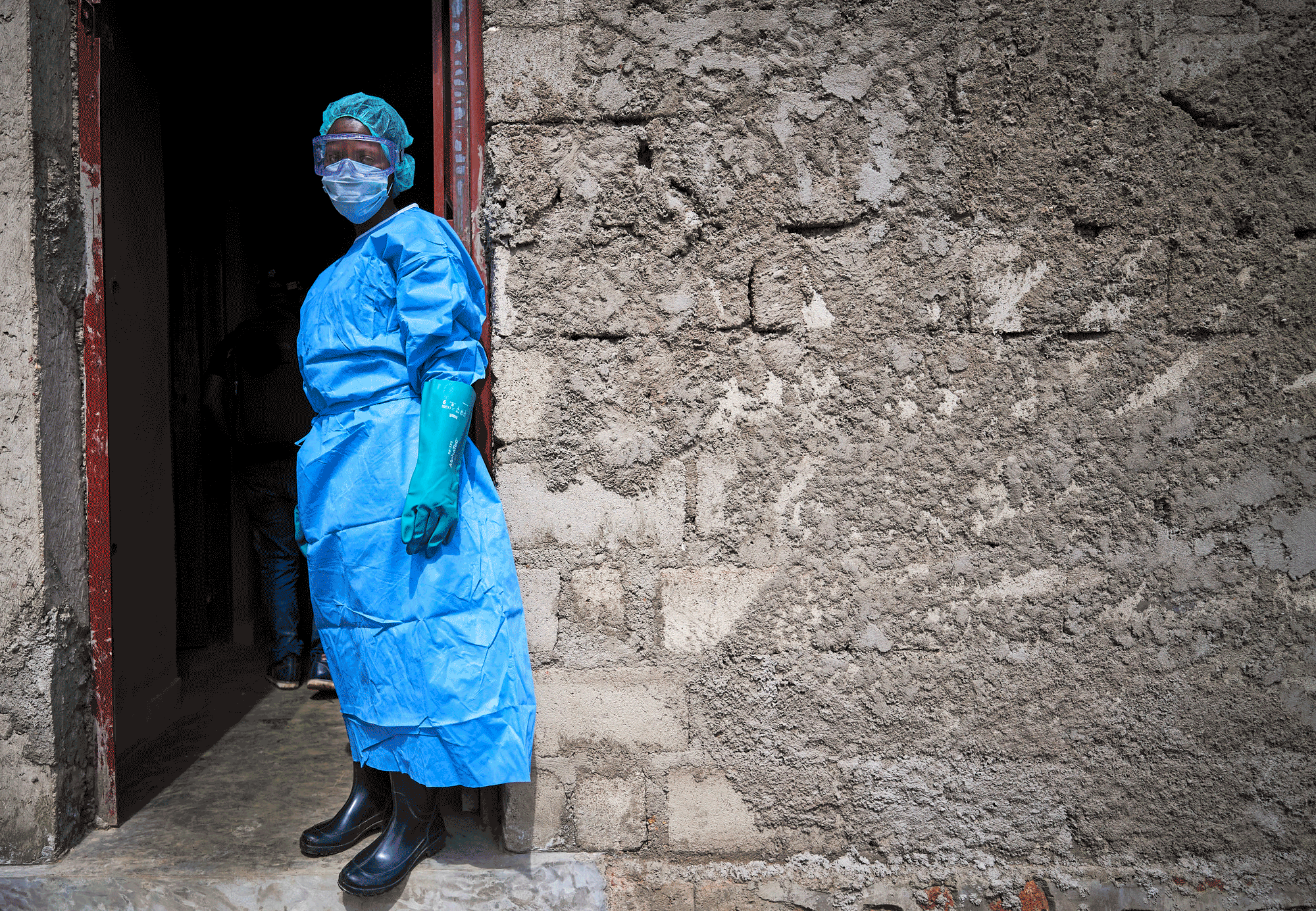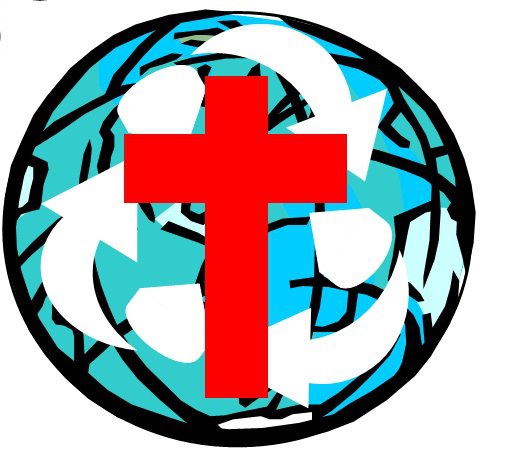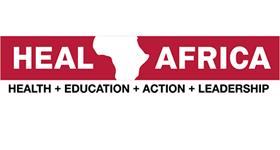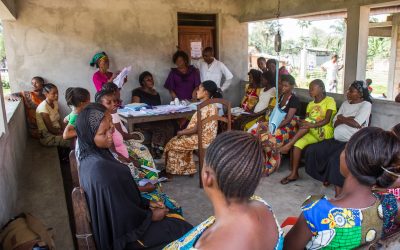Ebola Virus Disease
IN the democratic republic of congo - phase 2Strengthening community prevention, response, and recovery.
Program Overview
The current outbreak of Ebola in Eastern DRC is occurring in the midst of widespread insecurity, impeded access to interior health zones, and increasing distrust of international NGO and relief agencies. This environment presents significant challenges for effective surveillance and monitoring of persons exposed to Ebola. It also inhibits the dissemination of key messages to reduce the risk of transmission and stigma. Furthermore, equipping rural health facilities with essential prevention measures such as Water, Sanitation and Hygiene, also know as WASH, waste management, and effective infection prevention and control material and protocols, or IPC, has become increasingly difficult.
IMA and its partners Tearfund, Program for the Promotion of Primary Health Care (PPSSP), and Heal Africa are implementing a community-based and sustainable approach to address the issues of impeded access, lack of trust and communication, and inadequate IPC measures in 76 strategic health facilities in 63 of the most affected and most at-risk health areas currently affected by the Ebola outbreak.
Project Goal: Support communities and health facilities impacted by the Ebola outbreak in DRC.
Implementation Period
November 1, 2019 to November 1, 2020
Duration
12 months
Project Cost
$11,613,251
Donor
USAID’s Office of Foreign Disaster Assistance
IMA and partners are implementing a six-component strategy to address the most urgent needs.

792 community health workers supported
IMA’s community outreach and mobilization approach includes deploying nurses and CHWs (relais communautaire) from strategic health areas for community-based messaging, contact tracing and enhanced surveillance.
Number of chws conducting public health surveillance

Contact tracing in association with WHO/MOH-supported Contact Team
IMA is undertaking daily surveillance and case monitoring in collaboration with the Ebola coordination-level contact tracing team.
Number of outpatient consultations
Number of households reached by a CHW as part of SBC efforts

Community-based WASH
Community-based WASH projects are helping to improve hygiene, reduce virus transmission, and create positive touchstones to link to Ebola prevention and response actors in the health sector.

77 health facilities supported
Since the onset of the outbreak, communities have eschewed health services at local facilities due to the perceived risk of Ebola. IMA and partners are working to ensure community demand for and access to quality safe, and comprehensive health services in an additional 6 selected health facilities in priority health areas as part of a scale-up ‘warp-around’ component.

Health facility-based IPC
The health facility-based IPC approach includes a rapid survey and gender analysis, provision of IPC material and applied protocols, and a monthly support package and checklist to ensure compliance.
Number of community members who received an EVD-associated message delivered by a CHW

WASH and waste management in health facilities
Cost-efficient, rapid, and appropriate WASH repairs/renovations are being provided to the Ebola isolation units of each of the central health centers and comprise clean water supply repair, latrine rehabilitation and repair, solid waste incinerator rehabilitation, and set aside areas for triage, isolation, PPE donning and doffing, and ambulance evacuation.
Map
EVD response in 10 health zones in north kivu and ituri provinces
Epidemic Curve by Active Health Zones
Data retrieved from the World Health Organization.

Partners
IMA is working with Heal Africa, Tearfund and local non-governmental organization, Programme de Promotion des Soins de Santé Primaires (PPSSP), to implement the EVD in North Kivu and Ituri project.





John Mathe, a community health promoter, talks with Vernier and Providence Kahindo in front of their home in Beni, a city in eastern Democratic Republic of the Congo that has been hard hit by the Ebola outbreak that began in 2018. Mathe works with the Programme de Promotion de Soins Santé Primaires to educate residents in preventative health measures and do contact tracing that allows timely screening of people who may have come in contact with the deadly virus. PPSSP is a local faith-based partner of IMA World Health. (Credit: Paul Jeffrey, IMA World Health)
read more about Phase 1 of the Ebola Virus Disease project in North kivu and ituri
Implant Method in DRC: A Family Planning Success Story
Spreading the Word about the Implant Method in DRC.News is spreading about the implant method in...
Implants Create Opportunity in DRC: A Family Planning Success Story
Julienne is one of the many women we celebrate during International Women’s Month. She is a...
Safe Delivery App Helps Health Workers Respond To Emergencies In DR Congo
Dr. Nancy Bolan knows how important it is for health workers to have up-to-date information when...
QUICK CONTACTS
Recent Posts
Implant Method in DRC: A Family Planning Success Story
Spreading the Word about the Implant Method in DRC.News is spreading about the implant method in DRC. The families featured in this article are partly to thank. The stories below are just a snapshot of the impact the implant has made on the lives of families using the...
Implants Create Opportunity in DRC: A Family Planning Success Story
Julienne is one of the many women we celebrate during International Women’s Month. She is a shining example of how implants create opportunity in DRC. She is a 43-year-old mother of four and a force to be reckoned with! Julienne and her husband had three children when...
Safe Delivery App Helps Health Workers Respond To Emergencies In DR Congo
Dr. Nancy Bolan knows how important it is for health workers to have up-to-date information when responding to a maternal or newborn emergency at a clinic in the Democratic Republic of Congo. While serving as a deputy country director for IMA World Health in DRC from...





